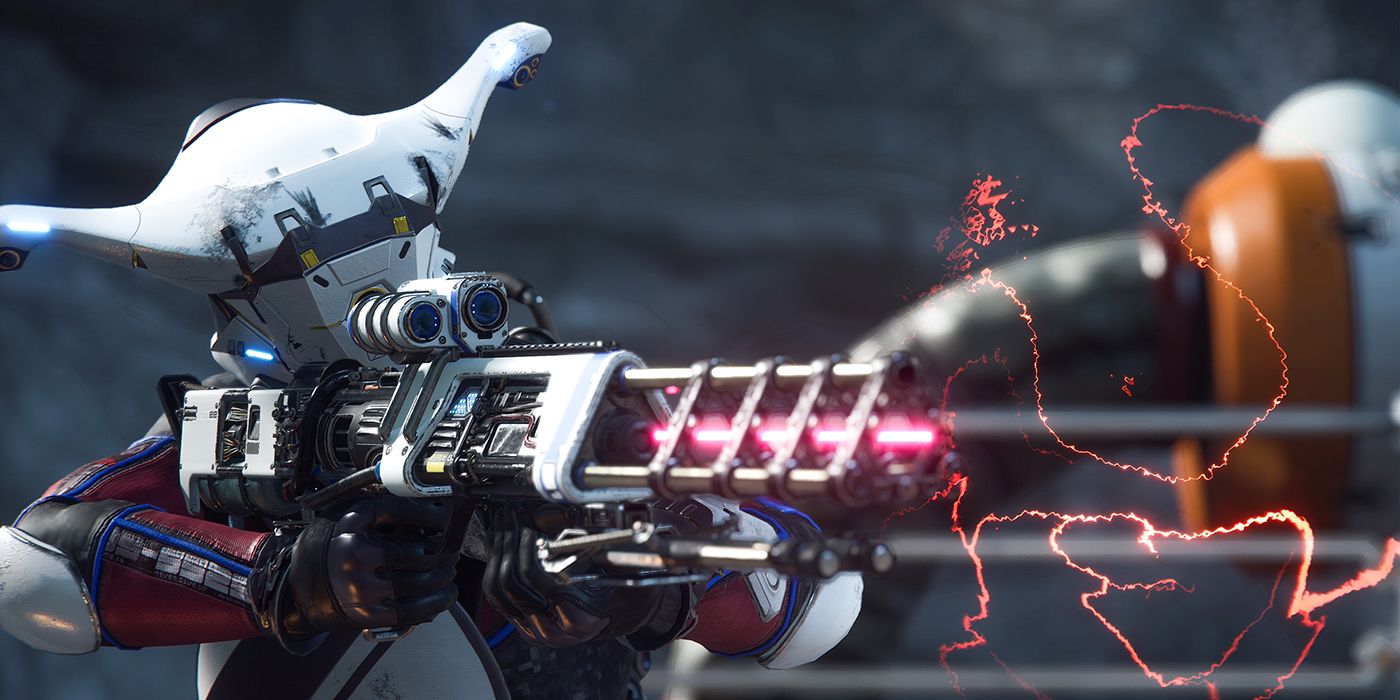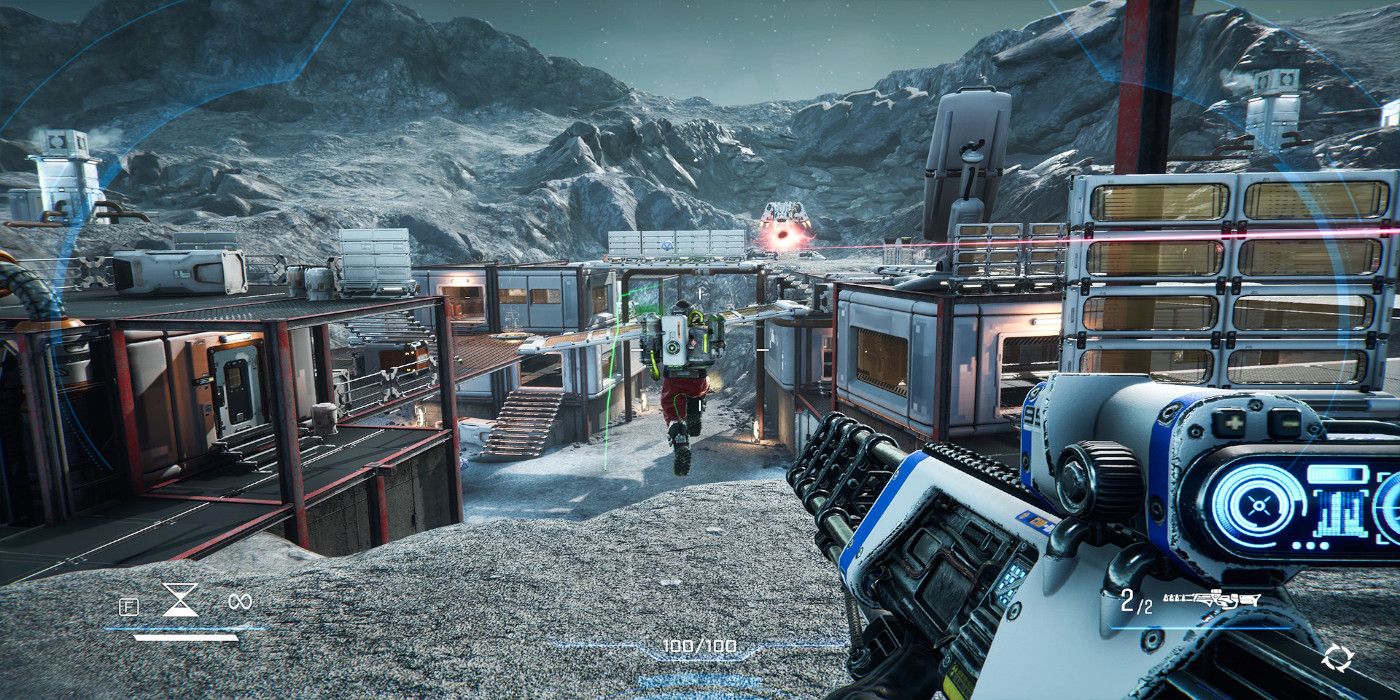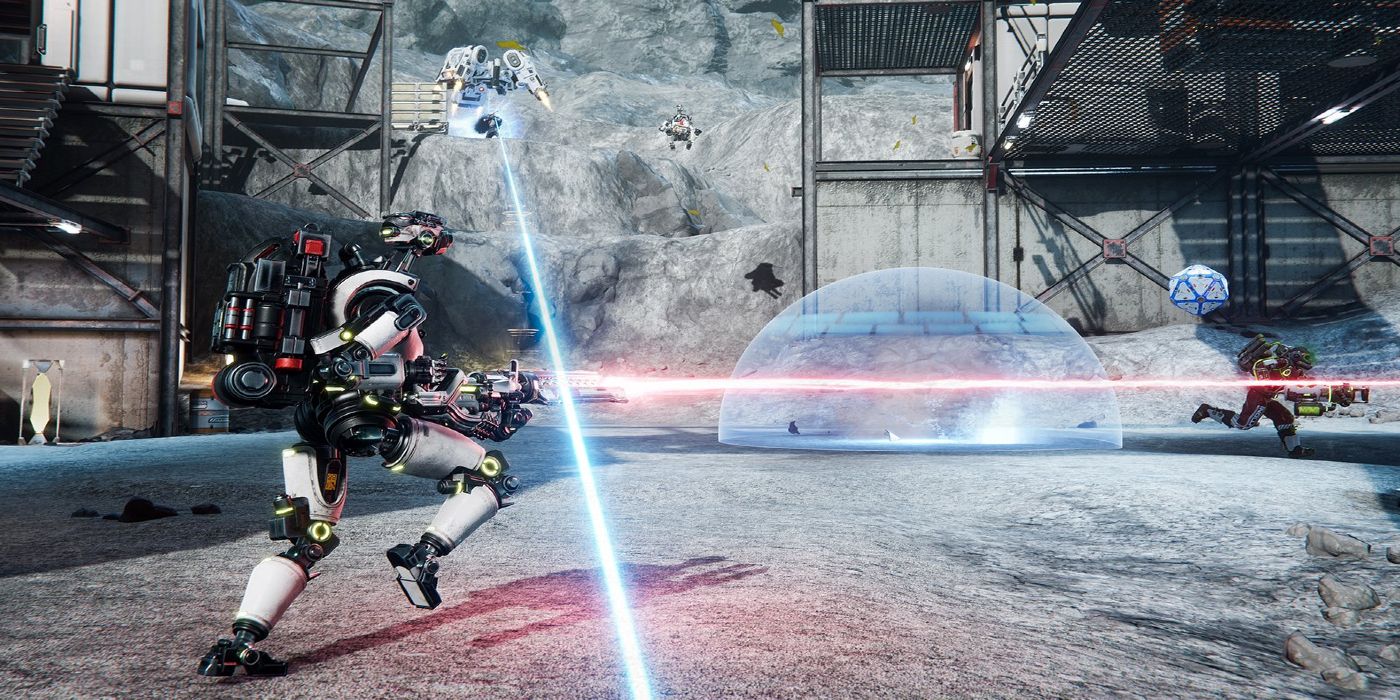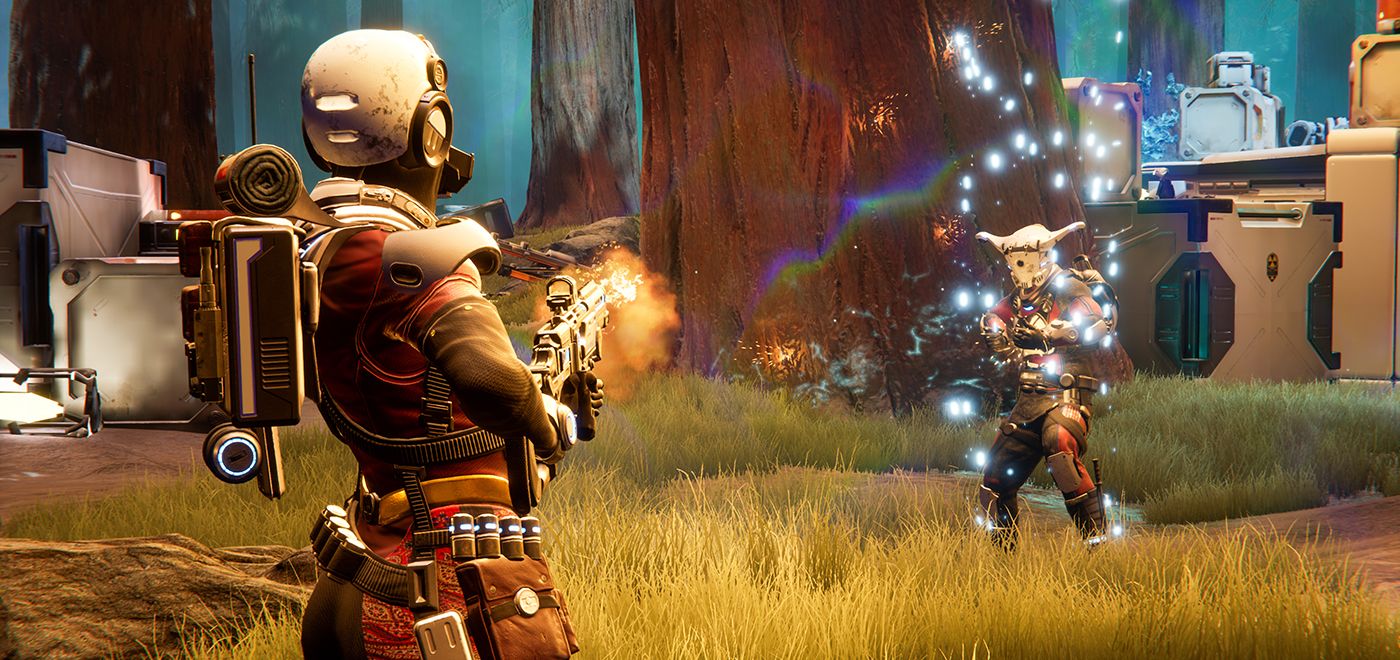Ratloop Games Canada is hard at work on Lemnis Gate, a team-based sci-fi shooter set in a desperate future. While that recipe may sound familiar, the game's unique time-looping mechanic sets it apart from the crowded field of competitive shooters. Players take turns controlling operatives, vying for objectives, laying traps, and—most crucially—retconning their opponent's actions with skillful plays. Each Lemnis Gate player must think in terms of counter-plays from the start and skillfully layer their turns to craft a winning strategy.
Lemnis Gate's time looping, turn-taking premise is simple to grasp in theory, but in practice, the mechanic presents players with a nearly dizzying number of strategic options. While there was too much to take in to fully assess the depth of the potential meta and overall staying power, our brief hands-on wiith Lemnis Gate showed tremendous promise. Following the preview, Game Rant spoke with Ratloop's lead developer, James Anderson, to discuss learning curves, fine-tuning ability balance in a world where time is circular, and what lies at the core of a solid shooter.
Play the Game, Not the Controller
Clever mechanics and novel ideas often mark the difference between good games and great games, but creativity cannot compensate for weak core gameplay. When asked about the most crucial elements for a good shooter, Anderson had this to say:
"I’m a game programmer by trade, so I believe controls are probably the most important thing. You want to play the game, not the controller. Having things perform the way you expect them to perform. As an example, one of our goals was to have the operatives’ abilities and weapons feel smooth, so it’s just fun to move around the map. If you add a gameplay layer on top of that, it only heightens the experience."
When properly executed, excellent controls become invisible to players, and only bear comment when something goes wrong. There is much more to good control than intuitive button configurations, especially in an era where custom key-bindings are expected. Reliable and satisfying physics are crucial, especially in action games and shooters. Pleasing controls are the cornerstone of satisfying gameplay, as they marry players' intentions to their results. No matter how creative a mechanic is, if the game doesn't strike the right balance between smoothness and weight, disappointment is inevitable.
Every Second Counts
Being able to dial back the clock, or in Lemnis Gate's case—being able to layer actions on a shared timeline that can contradict prior actions—introduces a whole new level of balance that developers must account for. Anderson stated that Ratloop's goal is to create a game where a player's strategy matters just as much as skill. If control is the framework players use to accrue and express skill, balance is the key to a game having a healthy mix of available strategies. Anderson had this to share about balance:
"Time is one of the more valuable currencies in the game. In terms of something like a turret, you can balance it’s base damage, rate of fire, all those things, but you can also adjust the deployment time. You only have 25 seconds per round, so a deployment time of 5 seconds, for instance, is a big commitment."
It is fitting that seconds would be one of the most valuable commodities in games that play with the flow of time. With each turn layering an operatives' actions on the map, similar to Chess pieces making their moves, abilities that can lock down large areas or conflict centers have the potential to be overbearing. But by restricting each operative to single use turns with a unified length, Ratloop can fine tune cool-downs and deployment times to make sure that each ability use is an impactful resource without being unbalanced.
Learning Via Immersion
Mastering a game is a matter of being able to express skill and having the mechanical knowledge necessary to employ certain strategies at the right time. Exceedingly difficult, or even extremely complex multiplayer games present a significant barrier of entry to new players, but in exchange, they offer an incredibly deep metagame that presents matches from turning out the same way every time.
Anderson acknowledged Lemnis Gate has a steep discovery curve and it doesn't seem like there will be any shortcuts to success in this shooter. Unlike Overwatch, Apex Legends, and other hero shooters, players cannot rely on comfortable, easy-to-learn characters while they learn the ropes, as each turn requires the use of a different operative with unique skills and weaponry. The solution? Anderson advises players to dive right in, and to not be afraid of experimentation.
Lemnis Gate is currently in development for PC, PlayStation 4, and Xbox One with a release date yet to be announced.




